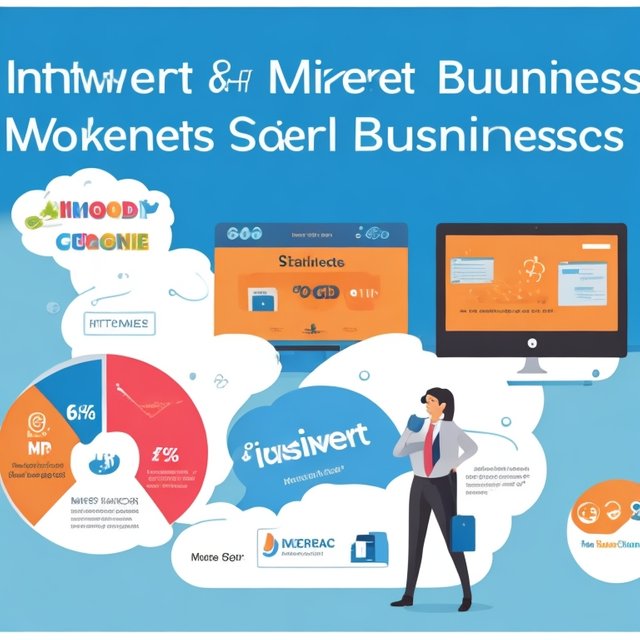Introduction
The Internet has revolutionized the way businesses operate, creating a vast and dynamic marketplace where companies can reach a global audience and generate revenue through innovative business models. Internet marketing, also known as digital marketing, has emerged as an essential tool for businesses of all sizes, enabling them to effectively promote their products, services, and brands online. This article explores the intricacies of Internet marketing and its impact on various business models.
The Rise of Internet Marketing
In the early days of the Internet, businesses primarily used it for communication and information exchange. However, as the Internet evolved and became more accessible, it transformed into a powerful marketing platform. Companies began to recognize the potential of the Internet to reach a wide audience, target specific demographics, and track marketing campaigns with greater precision.
Internet marketing encompasses a wide range of strategies, including:
Search Engine Optimization (SEO): Optimizing website content and structure to rank higher in search engine results pages (SERPs), increasing organic traffic.
Pay-Per-Click (PPC) Advertising: Placing paid ads on search engines, social media platforms, and other websites to drive targeted traffic to a landing page.
Social Media Marketing: Engaging with potential and existing customers on social media platforms like Facebook, Twitter, and Instagram to build brand awareness and promote products or services.
Content Marketing: Creating and sharing valuable and relevant content, such as blog posts, infographics, and videos, to attract and engage an audience.
Email Marketing: Building relationships with subscribers by sending personalized and informative email campaigns.
Affiliate Marketing: Partnering with other websites or individuals to promote products or services in exchange for a commission on each sale generated through affiliate links.
Impact of Internet Marketing on Business Models
Internet marketing has had a profound impact on business models across various industries. It has enabled companies to:
Reach a Global Audience: Businesses can now connect with potential customers worldwide, bypassing geographical limitations and expanding their market reach far beyond traditional marketing channels.
Target Specific Demographics: Internet marketing tools allow businesses to precisely target their marketing efforts to specific segments of their audience based on demographics, interests, and online behavior.
Track Marketing Campaigns: With sophisticated analytics tools, businesses can measure the effectiveness of their marketing campaigns, identifying what works and what doesn't, and optimizing their strategies accordingly.
Engage with Customers Directly: Internet marketing platforms provide direct channels for businesses to interact with customers, address their concerns, and build relationships that foster loyalty.
Reduce Marketing Costs: Compared to traditional marketing methods, Internet marketing can be more cost-effective, allowing businesses to reach a larger audience for a lower investment.
Diverse Business Models Enabled by Internet Marketing
Internet marketing has facilitated the emergence of new business models that leverage the power of the digital world. These include:
E-commerce: Businesses can sell products and services directly to consumers through online stores, eliminating the need for physical retail locations.
Subscription-Based Services: Companies can offer recurring access to content, software, or services through subscription models, generating ongoing revenue streams.
Marketplace Platforms: Businesses can create online platforms where buyers and sellers connect, earning commissions from transactions or providing value-added services.
Digital Content Creation: Individuals and businesses can create and monetize digital content, such as videos, podcasts, and online courses, reaching a global audience.
Influencer Marketing: Businesses can partner with influential individuals in their industry to promote products or services to their engaged audience.
Conclusion
Internet marketing has transformed the business landscape, providing companies of all sizes with powerful tools to reach a global audience, engage with customers directly, and generate revenue through innovative business models. As technology continues to evolve, Internet marketing strategies will adapt and become even more sophisticated, enabling businesses to thrive in the ever-changing digital world.
